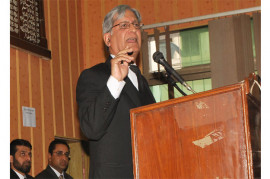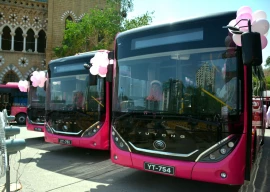
Delays and non-resolution lead to deaths, deprivation, loss of billions to the economy, closure of businesses and severe damage to society. After the lapse of a century, it is imperative to make ADR mandatory in all the civil and commercial cases.
The ADR mechanism and measures have been used in various countries in recent years to reduce conflict between individuals, communities and businesses, but has yet to be made a mandatory part of Pakistani law.
Among the countries that believe in the settlement of disputes outside the formal legal system through mediation and arbitration are the US, the UK, Germany, Australia, China, India, Bangladesh, Egypt, Singapore, Japan and Sri Lanka.
They believe in ways that help resolving disputes that do not involve going to court.
ADR bridges the gap between the needs of society and the law. A court-sponsored ADR mechanism can dramatically enhance the speed and quality of social justice, due to the speed, expertise and privacy that come with it. Further, ADR solutions are far cheaper than taking a case to court. Every case resolved through this mechanism saves the government money, and prevents courts from becoming overburdened with cases.
In Pakistan, the legal justice system has become increasingly inadequate and ineffective due to the growing complexities of modern life.
In light of this situation, a bill was tabled by Arif Alvi from the PTI — the Code of Civil Procedure (Amendment) Act, 2015 — in the assembly last year. It sought to incorporate Section 89-A (Alternate Dispute Resolution) in the Code of Civil Procedure (1908).
The proposed bill is a vital document, as it suggests making arbitration, mediation or conciliation mandatory in disputes between landlords and tenants, pre-emption cases, civil matters, commercial disputes, and the ordinary transactions of merchants and traders.
Matters revolving around business documents or contracts, agreement of sale of land by housing societies and private developers, carriage of goods, business agency franchising, distribution and licensing agreements, partnership agreements and construction contracts should all fall within the ambit of the ADR mechanism, the amendment suggests.
It adds that disputes related to technology development in software, hardware, networks, websites, and issues connected with mercantile agency and its use should also be dealt with through the mechanism.
The proposed bill also suggests that a court can impose a cost, which may extend to Rs5 million, on a party found to have a false or baseless claim or defence. It adds that a mediator will attempt to resolve the dispute within a period of 60 days from the date of receiving a reference, which the court may extend for 30 additional days.
In view of the tremendous burden on courts, where a huge backlog of cases exists, it is essential that processes which prevent conflicts from exacerbating the system should be encouraged.
No one can realistically aim to achieve such an overhaul overnight. However, slowly and gradually the ADR mechanism will prove its worth. It should be afforded at least some space within a system utilising a century-old law.
Published in The Express Tribune, February 7th, 2016.






































COMMENTS
Comments are moderated and generally will be posted if they are on-topic and not abusive.
For more information, please see our Comments FAQ